It was still dark outside, with some lazy English rain hitting my rooftop. The phone in my hand was calling someone at a far far away island, where – as I imagined – the Sun must be shining and the seawaves gently touching the seaside. Réunion was a frequent topic at my French language classes, but I was still a bit scared to talk to a local who allegedly speaks better French than other languages. Fortunately, everything turned out right. Musician Danyèl Waro’s English is also pretty fine, and our mixed language discussion fit quite well in the end to all the things he explained about his life and works as a musician, poet, instrument maker, and activist. So, here is a special man from a special place!
How did you spend your childhood at Réunion and how did you discover that kind of music that made you famous?
I grew up in the fields of sugarcane and corn. We children were partly working in the fields and partly going to a school run by colonialists. We learned a lot there, like French, English and German, but we didn’t learn Creole, our own language. Colonialists wanted to suppress our language, as this was an easy way to suppress a whole community. Soon I realized an urgent need to fight this system, and grew closer to the Communist Party, as it also struggled hard to keep traditions and local identities alive in the shadow of the oppression.
This was a very hard and critical fight those days. My family was very poor. My father grew up in austerity, he worked throughout his whole youth to make living for himself and his brother after the death of their parents. He knew nothing but work, he and his fellows played no games, no music, they had no fun. For them, it was clear that if you do these things, you lose precious time that you could spend with work in the fields. Similarly, as a child and young adult, the main thing in my life was work, I had no holidays, no music, no games. Even the colonialists didn’t like the idea of people spending time with such things, music, games and fun were kind of forbidden.
That’s horrible!
Yeah, it was. But I found my own way within this. Although I didn’t sing very well, I just loved to sing while working in the fields, and my brothers joined me as well. At the age of 18, I discovered maloya, the local music. It was strongly linked to the independence movement pushed by the Communist Party, and I just immersed in it deeper and deeper. I also danced and experienced some deeply emotional moments. Then I began to sing with my own words and melodies, and that’s what I’m doing since then.
And I also heard you make your own instruments.
Yes, when I discovered maloya, I was immediately attracted by its special instruments as well. One the one hand I like to work with my bare hands, and on the other hand it was somehow clear that the more maloya instruments I make, the more famous maloya can be throughout the island. It was part of my fight to make, sell, share those instruments, helping a lot of people to sing, dance, and play music. Otherwise, as you can imagine, I couldn’t make money with simply playing maloya, at least not in the beginning. In the first twenty years of my career, playing maloya was something to fight for, not to live from. So I also sold the instruments to make money. And thereby, more and more people got to know maloya and learned to love it.
What made it very hard, though, that some people said many bad things about maloya. That it doesn’t make any sense, only wild rhythms, or that it’s not even real music but mere white noise, and so on. The worst part was that they labelled it as something coming from the devil. Colonialists wanted us to believe in a “Catholic God” and didn’t approve any other image of God or expression of faith, least the original African/Black drum music. They wanted us to integrate the feeling and belief that our local traditions were diabolic. So it was a very long way to go.
So you ended up as a rebel. In the title of your first album, you refer to yourself as ‘bastard’, and even a biographical film about you has this word in the title. How does it feel to call yourself a bastard?
Bastard (bâtard) has a double meaning in Creole. Some suppressed ethnic groups were called like this, and especially the children of mixed ethnicity relationships. I’m mixed myself: my ancestors were French colonists, Malagasy, and Indian. My surname Waro has French origin. The first Waro arrived to Réunion in the beginning of colonial times. Then, throughout history, French men took Malagasy women and had babies with them. There are so many different ethnicities on the island – therefore, we are all mixed from the very beginning. But bastard, of course, is a curse word for someone who is rebellious, frightful, wild. Even if it doesn’t usually have a positive connotation, I still had to use it to describe myself, as this was the way the authorities saw me.
What made you famous was that you were even imprisoned for skipping military service. Why did you decide this way?
I decided as a child already that I don’t want to join the army, and with twenty years of age, when the time came, I really decided to act upon it. I’m against violence, war – I’m a pacifist. I even despise the left-right-left-right kind of marching. And apart from that, as I was against colonialism and imperialism, whether French, US, or anything, I was desperate to escape from serving such systems.
Well, that was brave from you. One last question: if you had to explain the essence of maloya to someone who doesn’t know it at all, what would it be?
People might think that in maloya, the most important part is the form, but I see it another way. Everything should start with the meaning, the sense, and then the form will come automatically. The fact that we want to tell something is just as important as the form. If I have good ideas, then I have to strive to find good ways to realize them. A bad way might distort the message, so I have to make sure to avoid it. This is the philosophy behind my artistic expressions.
Danyèl Waro’s musical workshop at the Bohemian Venue and his concert with poet Ann O’aro in the Festival Theatre on 24th November!

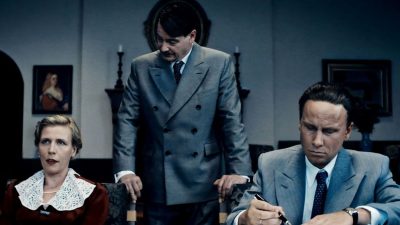
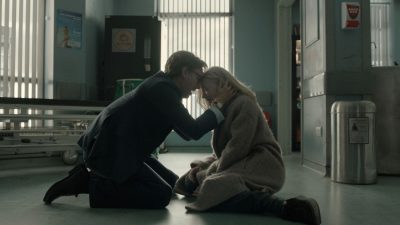


















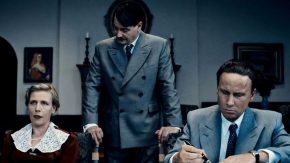
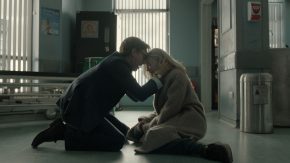

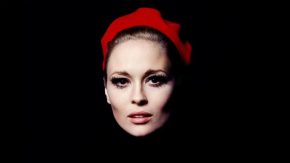

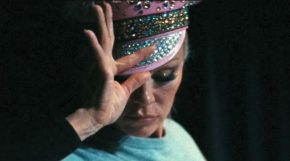
Comments